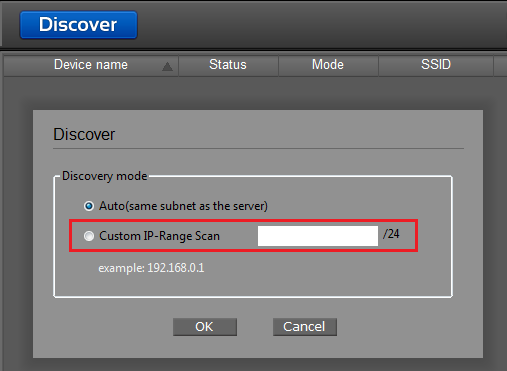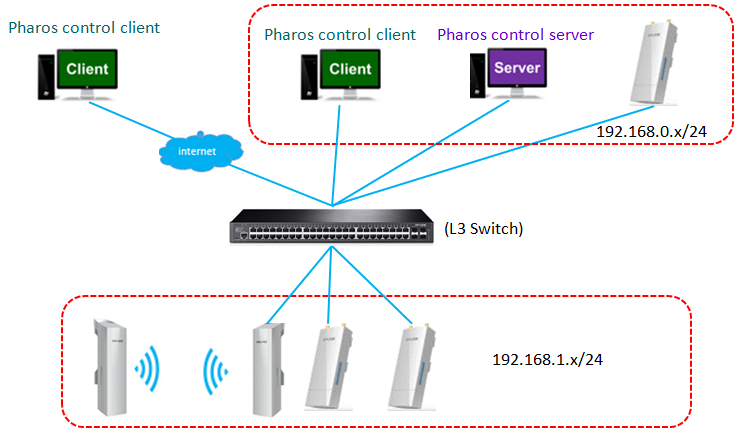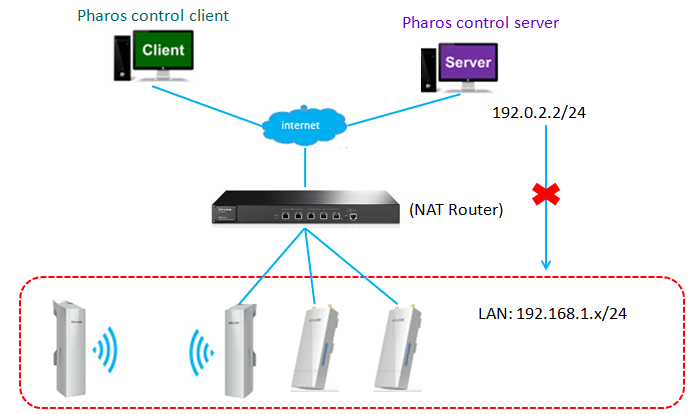How to manage Pharos devices in different network segments
Prior to Pharos Control v1.1.1, the Pharos devices to be managed must be in the same subnet with Pharos Control server. If you have Pharos devices in different network segments, you need to add a Pharos Control server in each of them.
After upgrading to Pharos Control v1.1.1, you will be able to manage the Pharos devices in different network segments. It has added a Custom IP-Range Scan option under discover menu as below:

Below is an example of how to manage Pharos devices in different network segments:
- Devices in these two subnets (see picture below) are connected to a layer 3 switch with routing function or a router working in non-NAT mode.
- Pharos control server can be installed in either subnet, let’s take 192.168.0.x/24 for example. Pharos control client can be installed in either subnet or the internet.
- For all the Pharos devices, please make sure firewall doesn’t block port 20002 and 22. Port 20002 is used for discovery and port 22 is used for management by Pharos control server.
- Should any Pharos device is working at AP client router mode, please make sure its remote management is enabled under management menu. (management--->SSH Server)
- To discover and manage devices in 192.168.0.x/24, you just need to choose Auto mode or set Custom IP-Range Scan to 192.168.0.0/24.
- To discover and manage devices in 192.168.1.x/24, you can set Custom IP-Range Scan to 192.168.1.0/24.

While if you deploy Pharos devices behind a NAT router as below, the Pharos control server will not be able to discover and manage the Pharos devices in LAN.

In this case, you must deploy Pharos control server in the same subnet as Pharos devices and then you can conduct a remote control in the Pharos control client. For how to manage Pharos devices remotely, please refer to FAQ-764.
Your feedback helps improve this site.